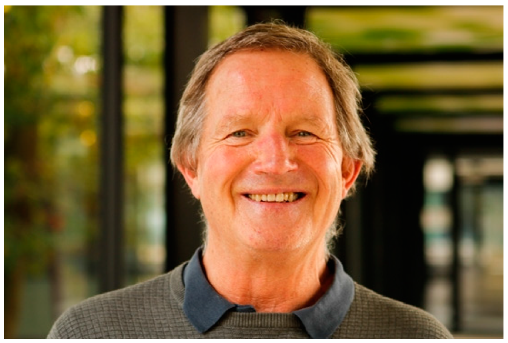It is with great sadness that I write this obituary in memory of Pieter Muysken, who was a member of the editorial board of Languages. Pieter was born in Oruro, Bolivia, on 11 April 1950 and passed away in The Netherlands on 6 April 2021.
Professor Pieter Muysken (11 April 1950–6 April 2021).
Pieter Muysken received a BA in Latin American Studies and Spanish from Yale University, and an MA and PhD from the University of Amsterdam. Subsequently, he was a professor at the University of Amsterdam, Leiden University, and the Radboud University, until he retired in 2017. In addition, he held visiting positions at several universities in Europe, South America, and the United States.
Pieter published countless books and articles in a wide range of research areas, including Andean languages, syntax, language contact, bilingualism, creole studies, code-mixing, language documentation and language typology. He did fieldwork in the Andes, the Caribbean, and with bilingual groups in The Netherlands. In recent years, he was also involved in the Andes and Amazon field school in Ecuador, which he thoroughly enjoyed.
Pieter also participated in initiatives to disseminate research to the general public, for instance through lectures for the general public in The Netherlands and a website for the project “voices of Africa”. He also produced a book series in Spanish on the indigenous languages of Bolivia (together with Mily Crevels). He was particularly proud of this project, which allowed him to give back to the country where he was born.
Pieter received numerous grants from the Dutch Research Council (NWO), the Royal Netherlands Academy of Arts and Sciences (KNAW) and the European Research Council (ERC), among others. In addition, he received many prices and awards for his research. Most notably, he was awarded the Spinoza price in 1998, which is the most prestigious award in science in The Netherlands.
During his career, Pieter supervised many MA and PhD students and postdocs, and he established collaborations with colleagues all over the world. Over the last few weeks, I have thought about what Pieter meant to me and I have read and listened to many stories from his students, postdocs, and colleagues (including at the Bilingual Mind workshop, which was held in honor of Pieter). As many colleagues pointed out, Pieter was extremely knowledgeable about a wide range of topics, both within and outside linguistics. His work was innovative and often combined theoretical linguistics and applied linguistics. He contributed to many areas within linguistics (e.g., bilingualism, language contact, Andean languages, just to name a few), and inspired many researchers. He also started several initiatives to bring together researchers from different areas of research in order to advance the field.
One of the things that made Pieter such an excellent researcher was that he was open to different points of view and willing to learn and adjust his ideas. Perhaps this is most evident from the fact that he rewrote his PhD thesis on the syntax of Ecuadorian Quechua.
Pieter was also well known for his generosity; he was always happy to make time for everyone and to share his ideas. He also created opportunities for students and junior researchers from different areas of the world, and he made an effort to give back to the communities where he did research. Pieter was not only an extremely talented linguist, but he was also kind, approachable, and wonderful to work with. In all, he was a role model for many of us, not only as a researcher but also as a person.
On a personal level, I met Pieter in 1998 and that was the start of a long collaboration and friendship. Pieter was my professor, mentor, colleague, and dear friend, and without him my life would have been very different. He inspired me to study linguistics and to work on language contact, bilingualism, Quechua, and Spanish. I am very sad about Pieter’s death, but I am also grateful to have known him. Like many others with me, I will miss him very much, and I hope that we will be able to continue his work in linguistics in general, and on Quechua and Spanish in the Andes in particular.





